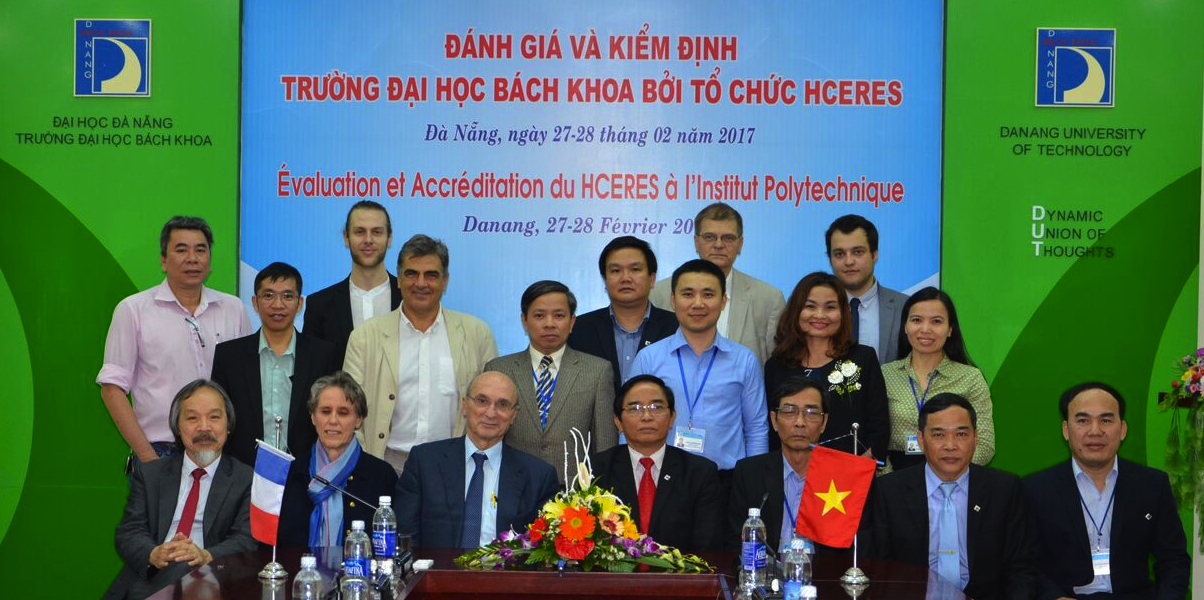DUT gets accreditation from High Council for the Evaluation of Research and Higher Education, France
On June 12th, 2017, The University of Danang – University of Science and Technology (DUT), has been accredited by the High Council for the Evaluation of Research and Higher Education (HCERES), valid for five years from 2017, together with three other Vietnamese universities: Hanoi University of Science and Technology (HUST), National University of Civil Engineering (NUCE) and Ho Chi Minh City University of Technology (HCMUT). This is the first time in Vietnamese higher education system, the HEI evaluation was implemented by an International Accreditation Organization.

HCERES was established under the Act No. 2013-660 on July 22, 2013 on the basis of the French Agency for Assessment of Higher Education and Research (AERES) and inherited its activities. HCERES is an independent quality assessment and accreditation body responsible for assessing higher education institutions, research institutions and training programs. HCERES is an official member of the European Association for Quality Assurance in Higher Education (ENQA) and the Standards and Guidelines for Quality Assurance in European higher Education Area (ESG) in the European Higher Education Area and Bologna Process (EHEA). In addition to the French training and research institutions, HCERES also participates in evaluating the training and research institutions of the EHEA countries. On average, HCERES annually evaluates and inspects 50 training and research institutions; 630 research units; 600 university training programs; 300 master's degree programs and 70 doctoral training programs.
HCERES has also conducted international reviews and accreditation for foreign universities, French educational institutions abroad, and international research institutions. The HCERES standards for evaluating international higher education institutions and research include six areas: strategy and governance (mission, development strategy, strategy implementation, communication ); Training and scientific research (training policies, research, training to meet the needs of learners); Vocational training and orientation (learning environment and education management); International relations; Management and operation (financial systems, assets, human resources, information systems); Quality and ethics (quality assurance policy, ethics in education and research).

 English
English
 Tiếng Việt
Tiếng Việt
